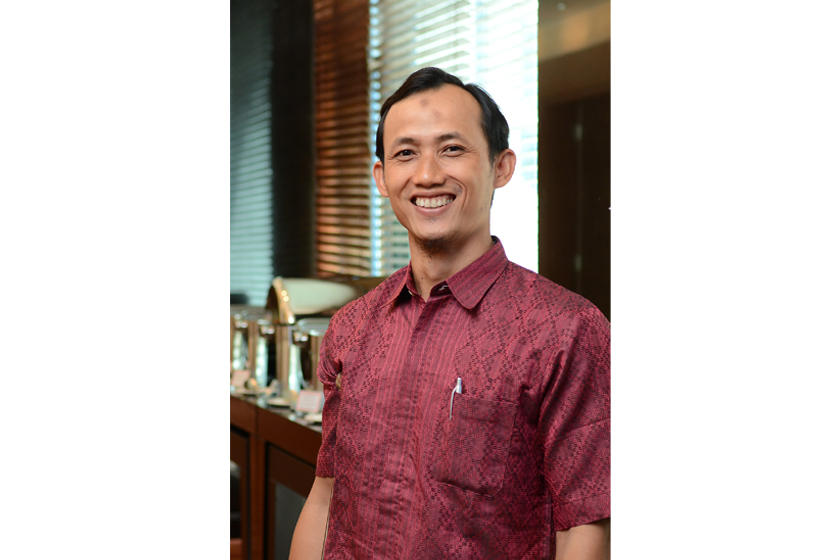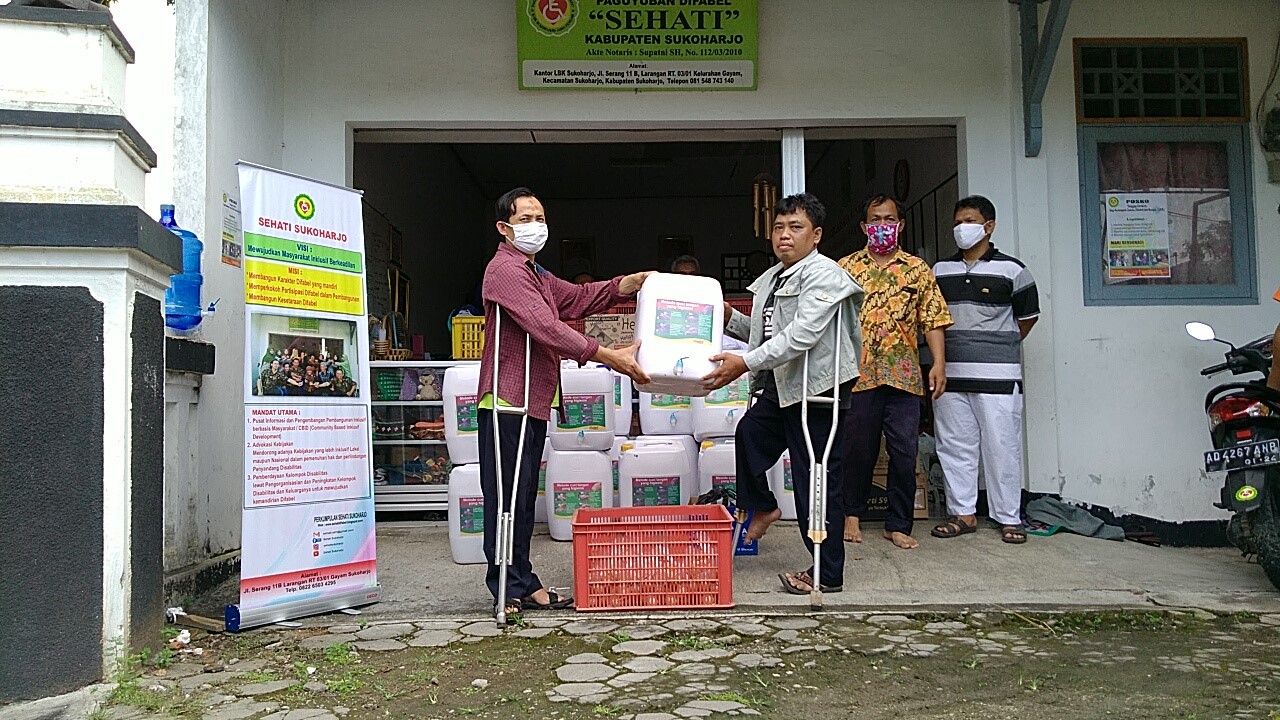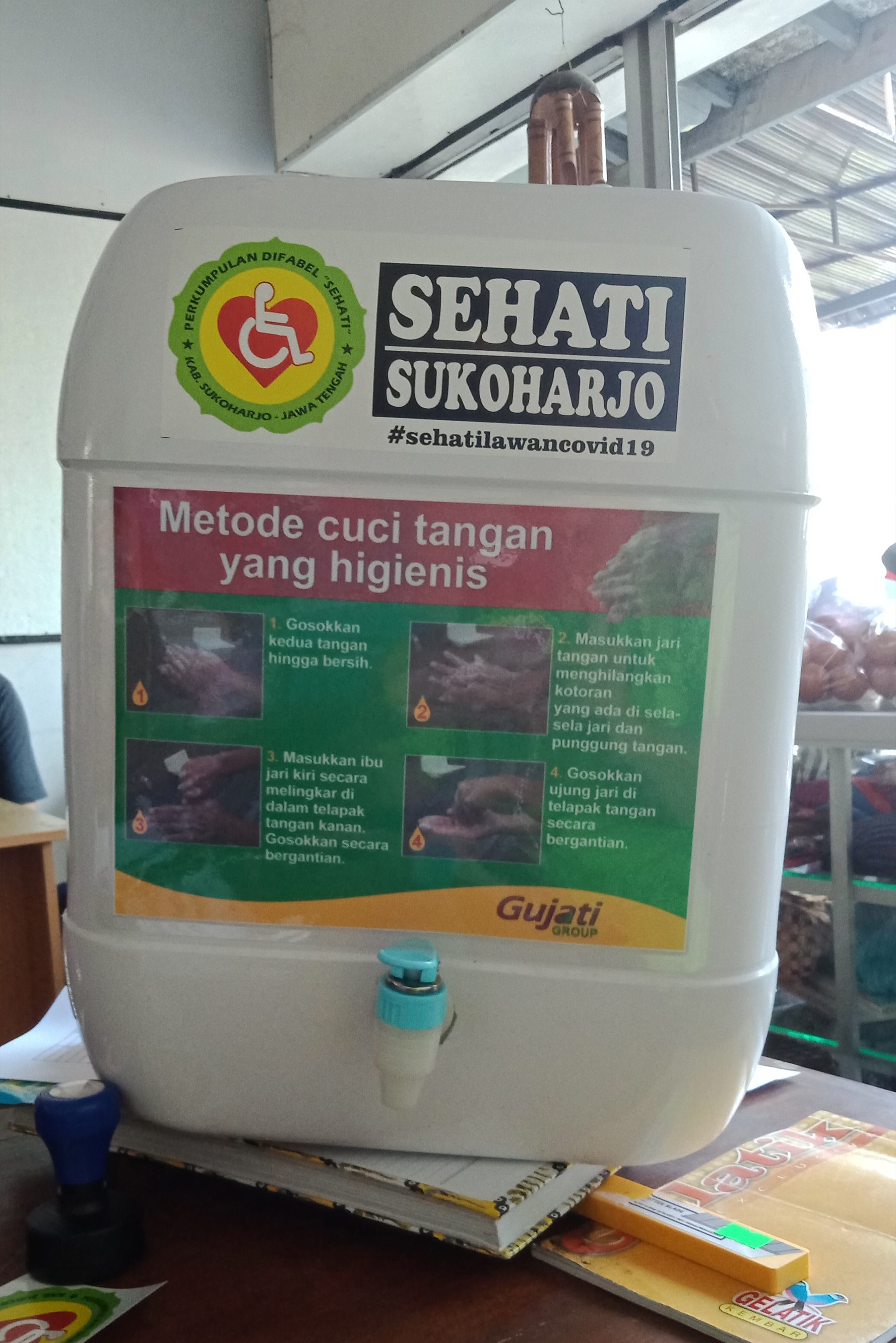
21 October 2025
Teuku Muhammad Hairunis: Fostering Future Leaders Through Youth Engagement
An Australia Awards Short Course alumnus is helping young people bring their concerns to the attenti... Read more
The Australia Awards are prestigious, transformational scholarships and short courses offered to emerging leaders for study, research and professional development in Australia

25 November 2020
 Giving voices to voiceless communities during the pandemic
Giving voices to voiceless communities during the pandemic
The early days of the COVID-19 pandemic were an uncertain and confusing time for all, including those who are most vulnerable. But one organisation that works with people with disabilities at the grassroots has made sure that help and information has reached those who really need it.
“We knew very little about the virus, so discussions were so intense in our WhatsApp group. We didn’t know what we were dealing with, but the impacts were real for people close to us,” Edy Supriyanto said of his organisation SEHATI.
“We needed access to more information about COVID-19, because lack of information was driving people into panic and restlessness.”
Paguyuban SEHATI Sukoharjo, or the SEHATI Sukoharjo Community Group, is an organisation for people with disabilities in Sukoharjo District, Central Java. It began in 1997 when some members of a sewing workshop for people with disabilities, including Edy, wanted to do more.
“The first two weeks of the pandemic were the hardest, we got so many reports about our friends with disabilities and elder people who needed support,” said Edy, who had polio when he was a child, and uses crutches.
After a series of discussions, Edy and his friends decided to initiate a ‘command post’ locally known as “Posko Komando,” to gather data about people who needed assistance.
Using WhatsApp, Edy’s group was collecting and verifying data, and sharing the information with the local Sukoharjo district government.
The district government responded well. They could receive up-to-date and verified data on the people who needed aid more quickly than if it was gathered officially. SEHATI’s vast network also helped reach more people in remote villages.
SEHATI’s data identified at least 3,500 people with disabilities, elderly and other vulnerable members in Sukoharjo, in need of aid and access to information, health and other services.
“Through the local government’s social agency, we ensure people on our list get access to public health insurance. As time has passed, we have also begun collecting data on children and elderly people. That’s why we called our command post the Posko ‘LDR’” (lansia dan kelompok rentan, or elderly, and other vulnerable groups).
Apart from continuing the aid distribution, the organisation began to assist local authorities in developing more inclusive guidelines for Communication, Information and Education. When the local government set up “Rumah Sehat COVID” as a quarantine house, Edy and his friends ensured that the inclusive concept was well implemented. One villager with impaired sight was among those who used the facility.
“We helped train some health workers about disability sensitivity, manners in delivering service and so forth,” he said, adding that until now, his organisation is still in regular contact with the local government agencies.
SEHATI Sukoharjo has distributed 1,233 packages of aid consisting of staple foods, milk, hand sanitiser and PPE. Recently it received IDR100 million from Bank Indonesia’s social program for additional aid.
SEHATI also runs two programs funded by the Australian Department of Foreign Affairs and Trade: Disability Rights Fund, a disability advocacy program and the Peduli Inclusive Village program, established in 2017 through The Asia Foundation.
Edy claims that there had been a lot of positive changes following collaboration with local authorities during the pandemic, particularly in terms of the government’s stance toward people with disabilities. The government has started to put people with disabilities in its priority groups for assistance, not only for direct tangible aid, but for services including loan facilities for micro, small and medium enterprises. Now, people with disabilities will not be charged for COVID-19 swab or rapid tests.
Apart from the growing solidarity during the pandemic, Edy says it has also helped to raise awareness of the importance of valid and verified data.
Through the Peduli program, SEHATI has worked to form sixty sub-head groups (SHGs) at the village level across Sukoharjo. The SHGs lead and organise their respective communities; doing the advocacy works and keeping tab with the village administrative tasks.
It wasn’t easy to develop these SHGs because many people with disabilities find it difficult to advocate for themselves in society. However, Edy says that organising people with disabilities at village level will continue to strengthen and empower them.
Edy is an alumnus of the Organisational Leadership and Management Practices for Disabled People’s Organisations Short Term Award ran by the Sydney Southeast Asia Centre at the University of Sydney in 2016 and funded by Australia Awards, where he gained more experience in community management and advocacy strategy. He is also a recipient of the Alumni Grant Scheme for his project in Java.
Being part of a vast alumni network in Indonesia, Edy has been invited to speak at online discussions held by fellow alumni to share his valuable experience organising community-based initiatives for people with disabilities.
“My experience in Australia taught me that a leader is not a ruler who must do everything by his or herself. A leader must be able to identify the strength of his or her community members and delegate tasks to them. When you need an invitation drafted, you can ask one of your members to do that.”
There are still many villages that have no SHGs, and many people with disabilities who do not have the confidence and support of their families, Edy said.
“Some are not even elementary school graduates. But we cannot always get the ideal. Our community organisation may still be far from ideal, but ours is a perfect forum for people with disabilities to get together and share their life stories. We can seek solutions together if there are problems.”
Elderly and other vulnerable members of society also must not be left behind because nobody stands up for them, Edy said. Being in a group of people with the same challenges will help those people going through adversity.
“It’s very important to drive people to organise, be it in small or big groups, so they can voice what they need collectively,” Edy said.
Edy recalled his time in Australia, where he spent a lot of time having discussions with Australian disability groups. He learned how they voiced their ideas, how they organised among themselves and managed the organisations. The knowledge brought him more confidence to take charge of what he had started back home.
“The most significant thing is that socially, I got more recognition when I returned from Australia,” he said. “Local authorities hear what I say, and they don’t undermine me.”


Share this news on:
 Related News
Related NewsThis website uses cookies to improve your website experience. We may also use cookies to analyse website data so that we can improve our online services. To find out more visit our privacy policy.
